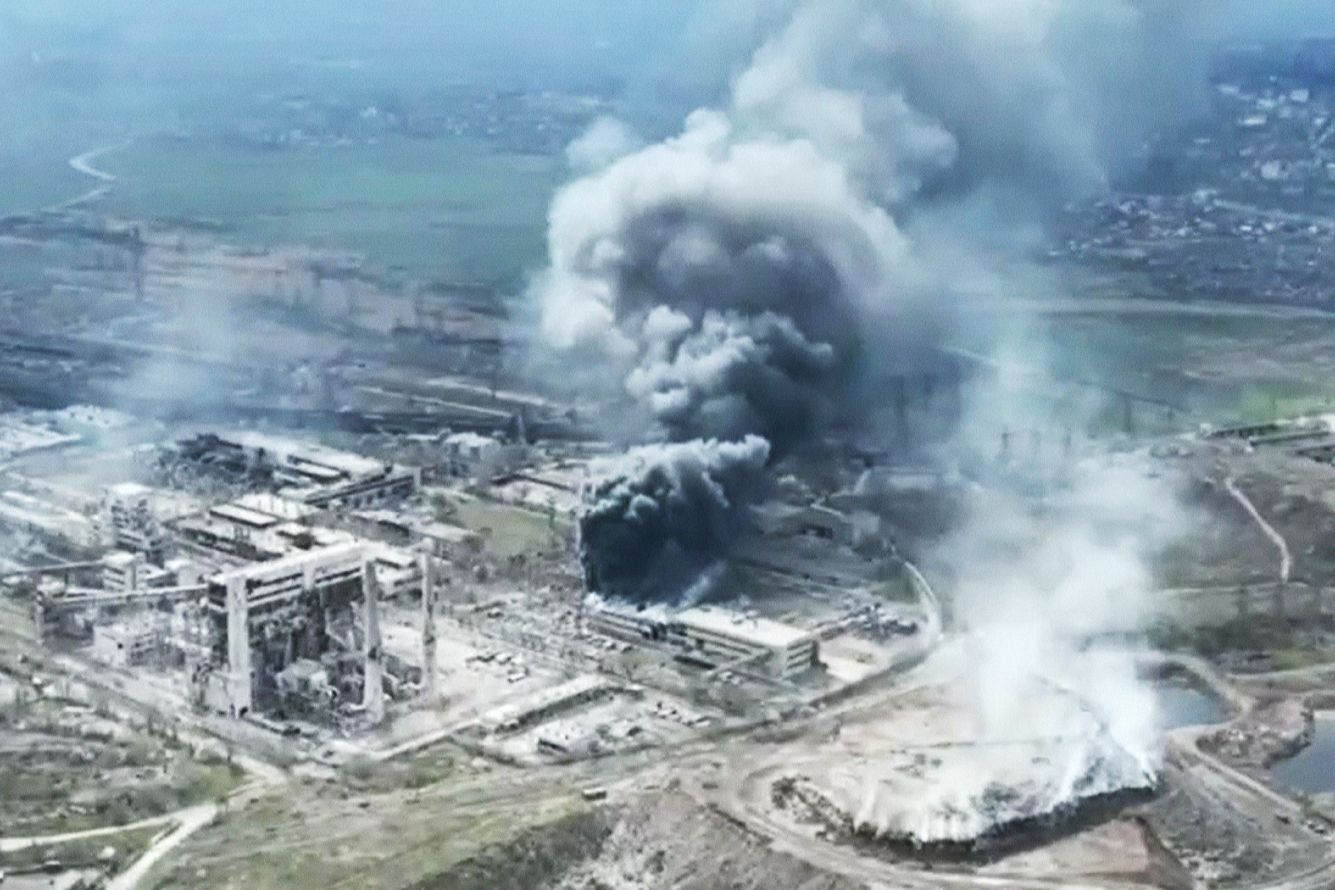The assault on Azovstal
Russian bombardment reportedly destroys Mariupol metalworks plant — a Ukrainian stronghold also sheltering civilians

On Tuesday, April 19, the deputy commander of Ukraine’s Azov Regiment said that Russian bombardment had destroyed Mariupol’s Azovstal plant “almost completely.” The metalworks plant was serving as a Ukrainian stronghold, where the Azov Regiment and 36th Marine Brigade continued to defend the besieged city. What’s more, according to Ukrainian authorities, at least 1,000 civilians (including children) were hiding in underground shelters at the industrial complex at the time of the Russian assault. Here’s what we know so far.
On Monday, April 18, Ukrainian President Volodymyr Zelensky reported that Russia had begun a “battle for the Donbas,” having focused “a very large part of the entire Russian army” on this offensive. Meanwhile, in the south-west of the Donetsk region, the battle for Mariupol (which Zelensky called the “heart of the war”) was ongoing — Ukraine’s Azov Regiment and 36th Marine Brigade were holding the line at the Azovstal metalworks plant.
On Tuesday, April 19, for the second time in three days, the Russian Defense Ministry called for the surrender of the Ukrainian forces at the Azovstal plant (the statement was addressed to “fighters from nationalist battalions and foreign mercenaries”). Colonel General Mikhail Mizintsev, who heads Russia’s National Defense Management Center, said that the “offer” was made “taking into account the catastrophic situation that has developed at the Azovstal metallurgical plant” and was “also guided by purely humane principles.” Allegedly, three humanitarian corridors would be made available to those who wished to surrender.
The Russian Defense Ministry also called on these forces to lay down their arms on April 16. In addition, the ministry claimed to have obtained radio intercepts of the Azovstal defenders allegedly asking Kyiv for permission to surrender, only to be told that they would be shot. How many Ukrainian troops are in the Azovstal plant is currently unknown; the Ukrainian side hasn’t disclosed this information. However, the militia of the self-proclaimed “Donetsk People’s Republic” (DNR) claims that there are no more than 2,500 Ukrainian troops at the site.
Also on April 18, the Ukrainian authorities demanded that Russia open a humanitarian corridor from Mariupol to Berdyansk for civilians sheltering at the Azovstal plant. Spokespeople for the Mariupol City Council stated that at least 1,000 civilians — “mostly women with children and elderly people” — had taken refuge in underground shelters at the industrial complex. Later, the Azov Regiment’s commander Denis Prokopenko issued a similar appeal, addressed to “politicians and the entire civilized world.” The regiment also published a video of women and children talking about sheltering at the plant and asking for a “green corridor” for evacuations.
Nevertheless, on April 19, “DNR” head Denis Pushilin said that information about the large number of civilians at the plant “was not confirmed,” arguing that the calls for humanitarian corridors were supposedly an attempt to save foreign mercenaries. The Russian Defense Ministry later repeated this claim, saying that “if any civilians are at Azovstal, we demand that all measures be taken for their release and [evacuation] through the established humanitarian corridors.”
In turn, the “DNR” militia’s deputy head Eduard Basurin claimed that reports about women and children sheltering at the Azovstal plant were a “pretext” meant to “stop the shelling of [its] territory” and to prevent an “assault” on the plant. According to Basurin, the assault on the Azovstal plant was already underway at this point, with support from Russian aviation and artillery (earlier, on April 18, the Telegram channel War Gonzo published a video report from the “newly recaptured positions of neo-Nazi militants” in the plant’s industrial zone).
According to the Mariupol City Council, Russian forces were targeting the Azovstal plant with “very heavy bombs.” The Azov Regiment’s commander Denis Propkopenko said that the Russian side was using “bunker-buster bombs,” among many others. In addition, the Ukrainian Security Service (the SBU) released an audio intercept, in which a purported “Rostov platoon commander” discusses alleged plans to use three-ton aerial bombs and “raze everything to the ground.”
On Tuesday evening, the Azov Regiment’s Deputy Commander Svyatoslav Palamar told journalists that the Azovstal plant was “bombed out and destroyed almost completely,” adding that there are “a lot of people” buried beneath the rubble.